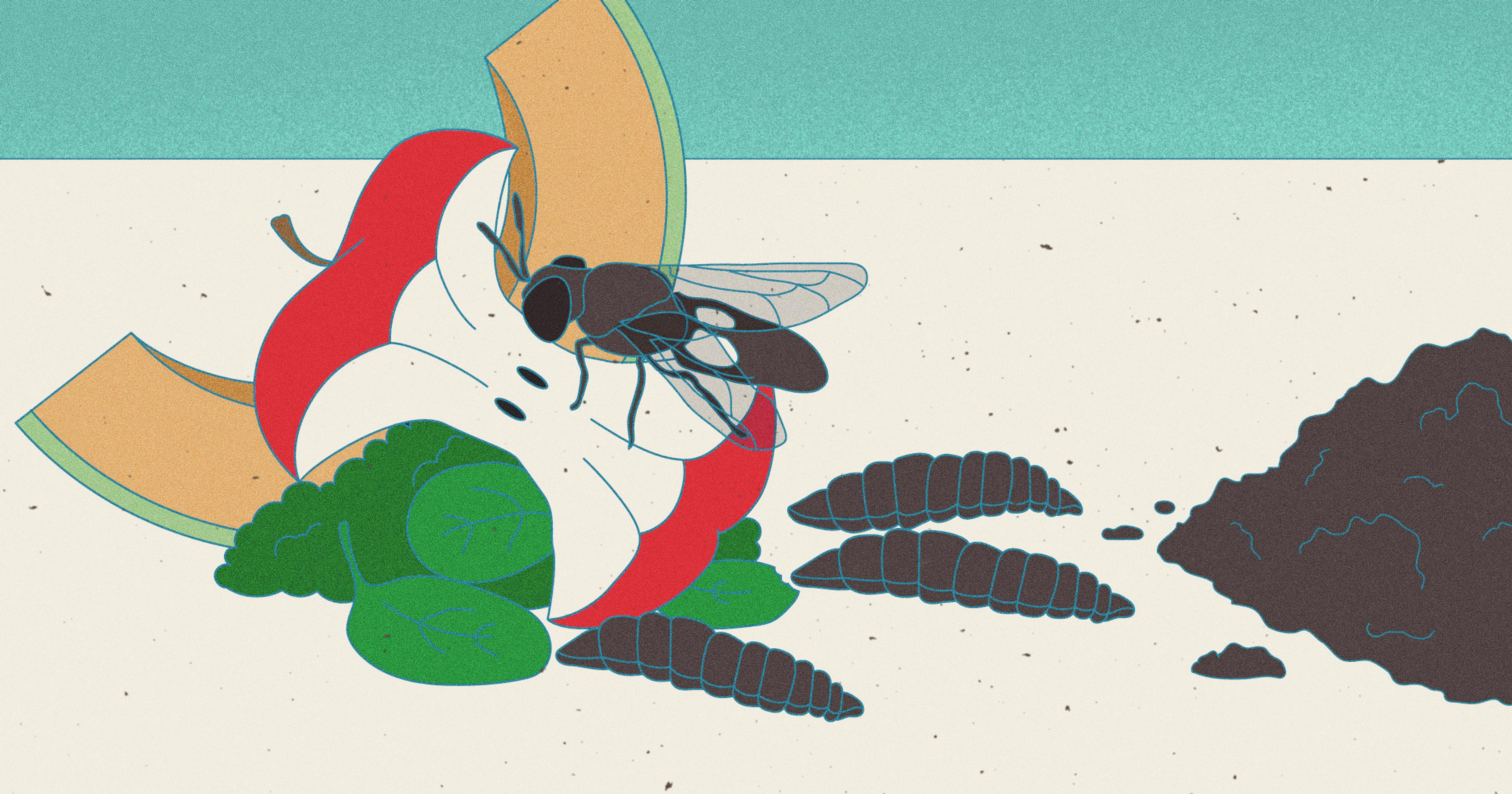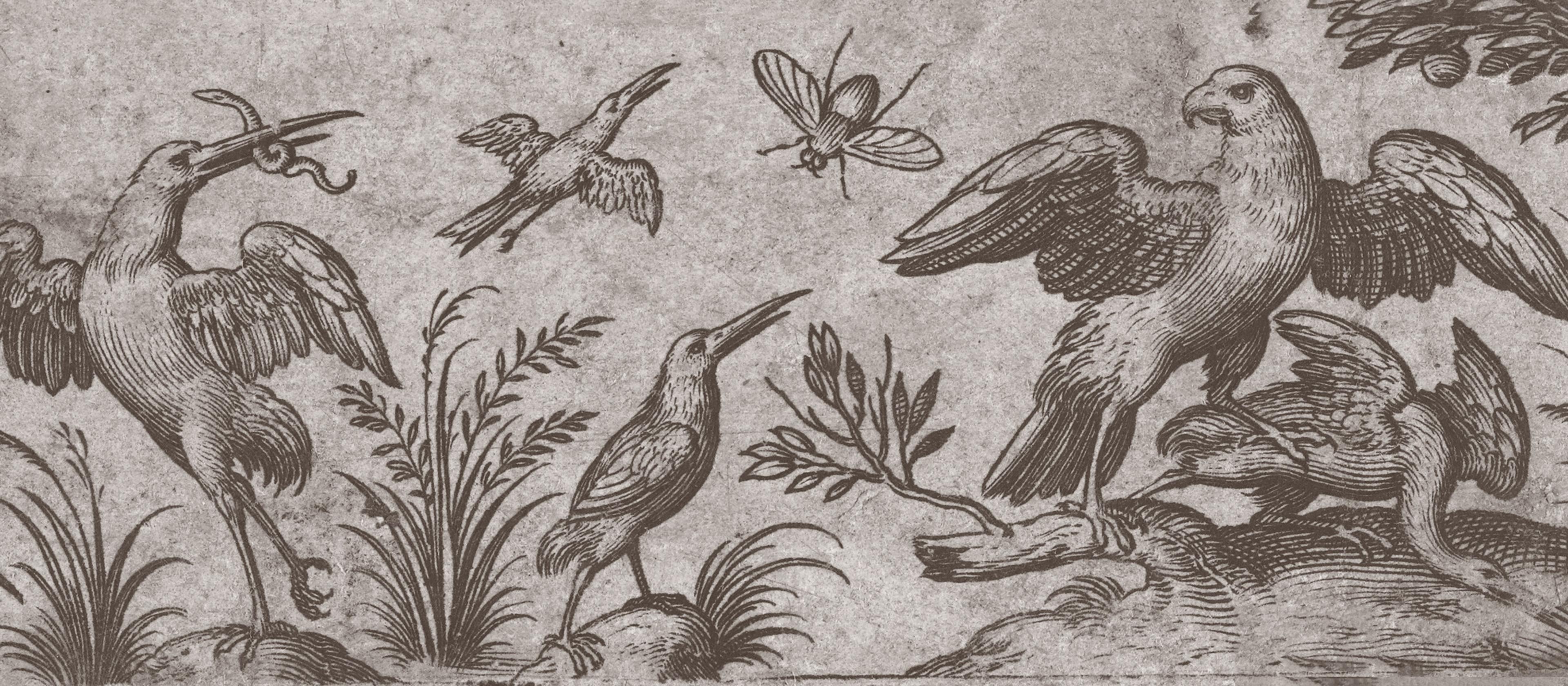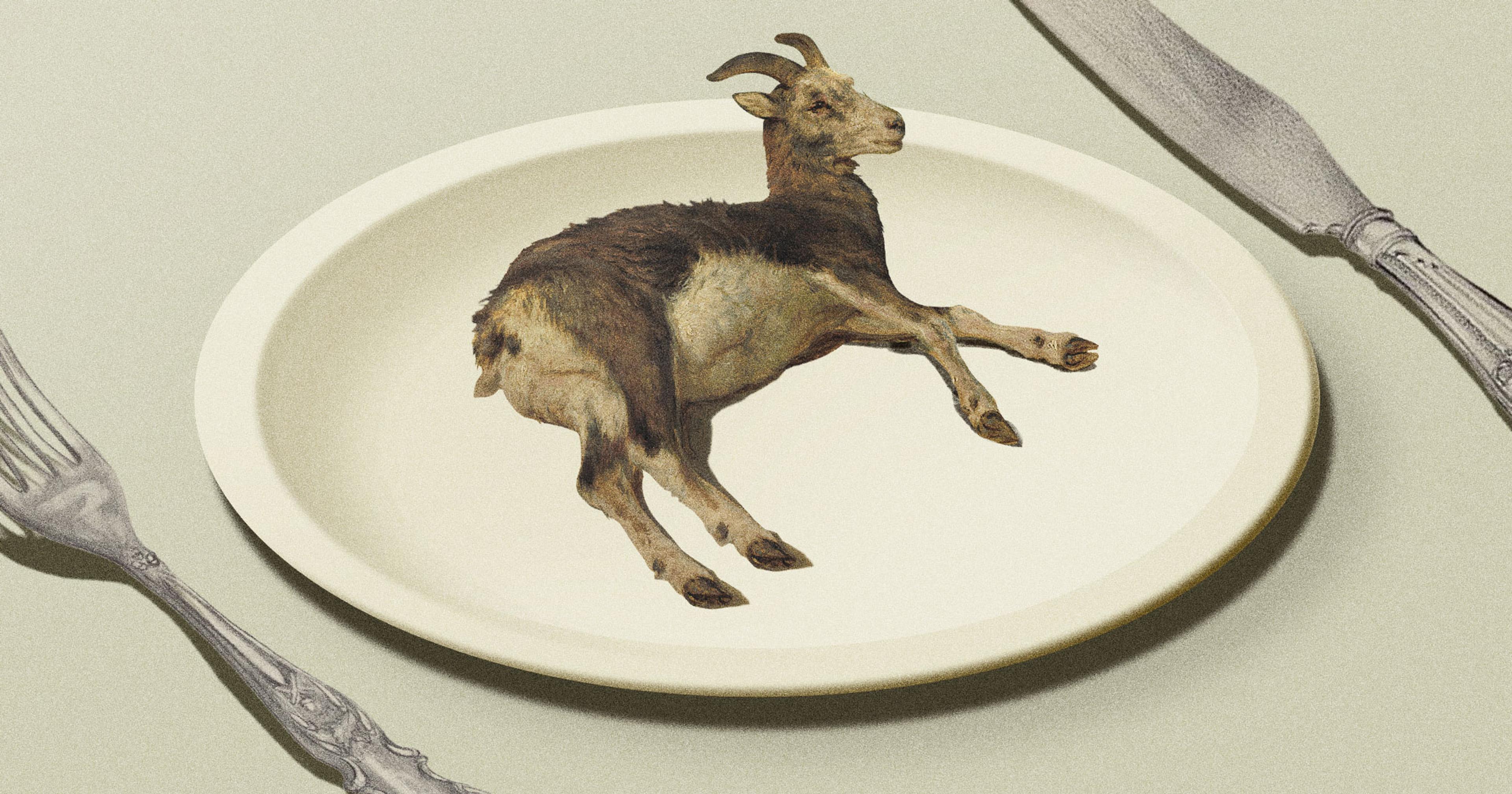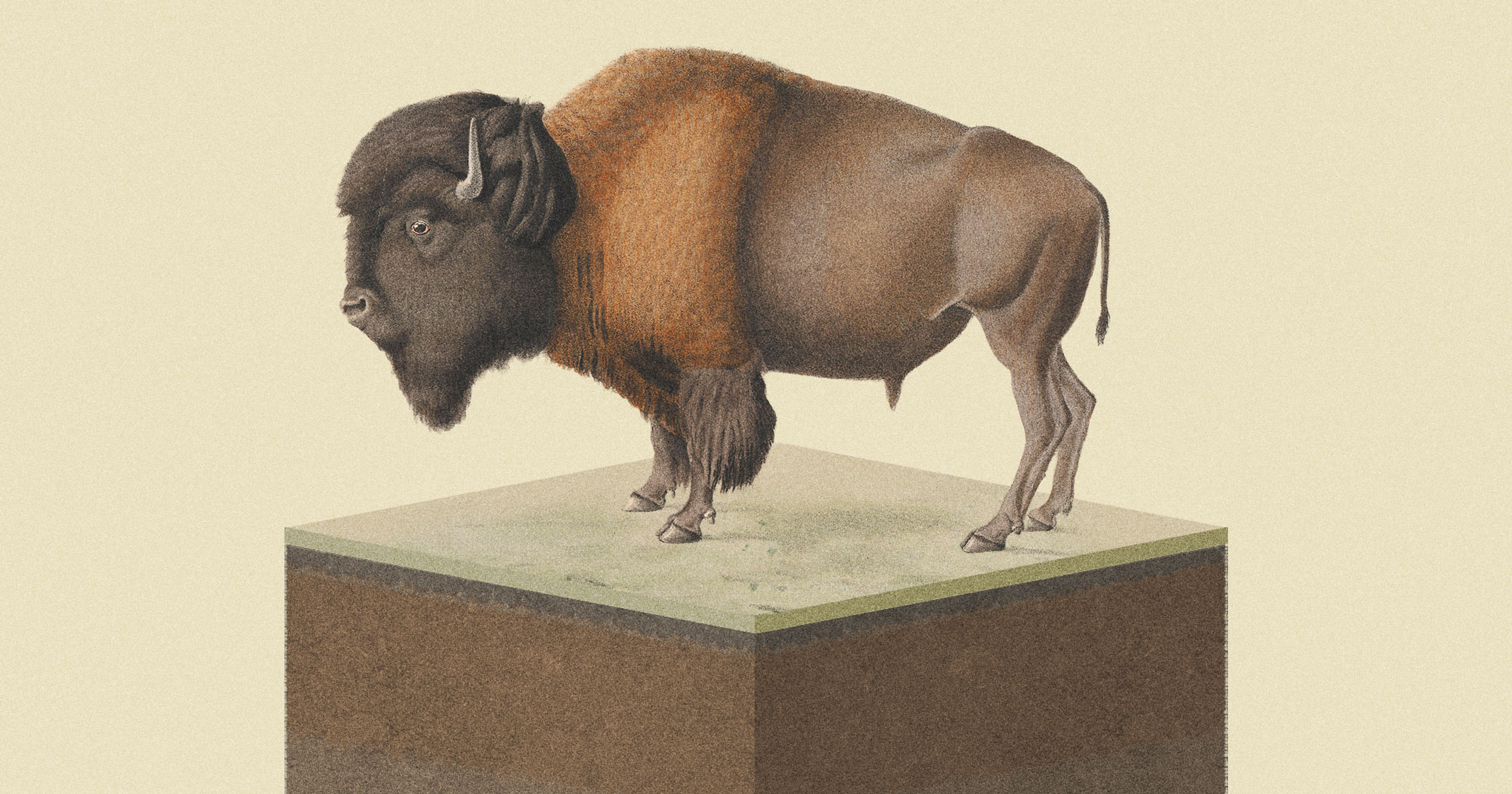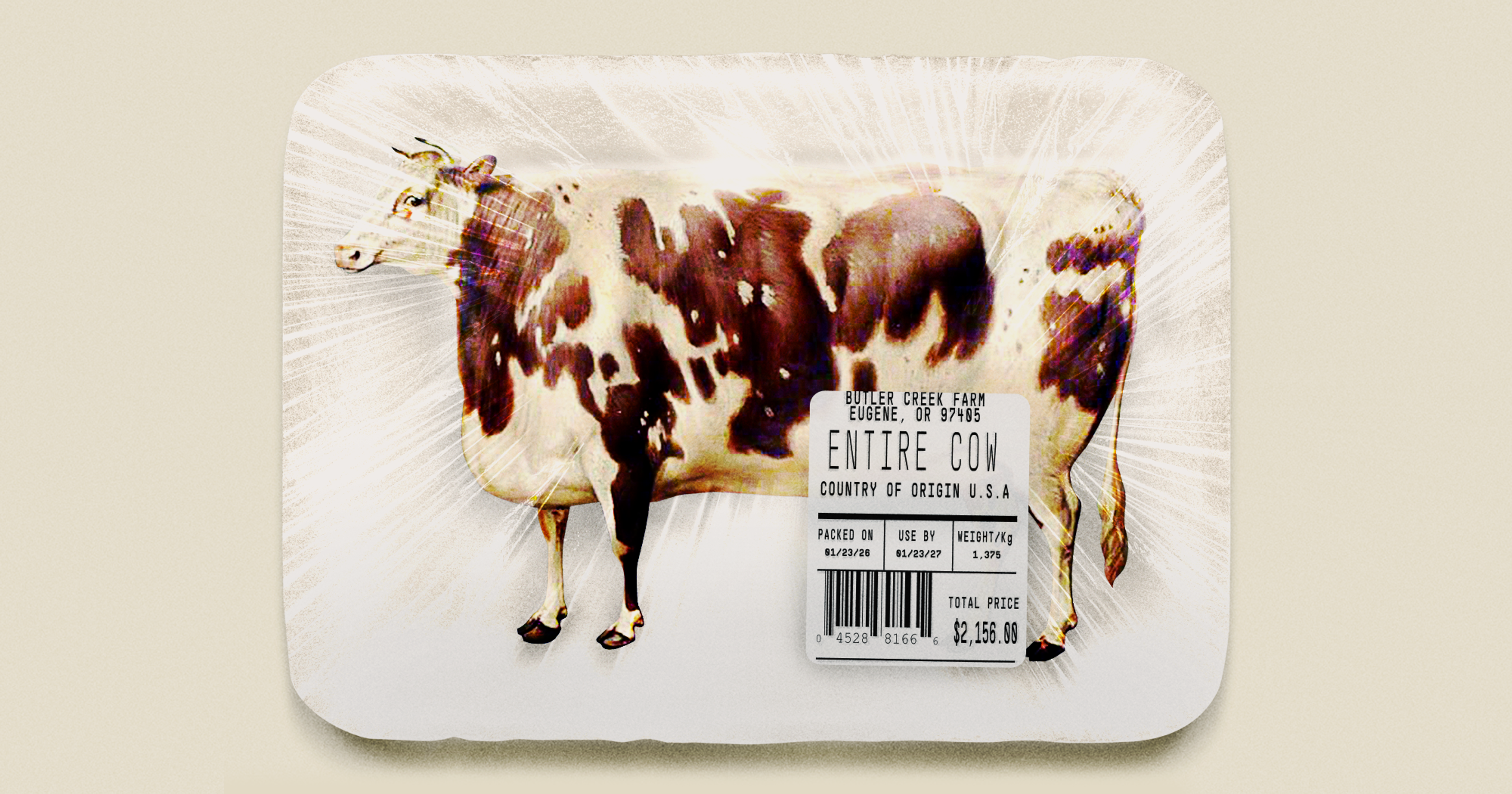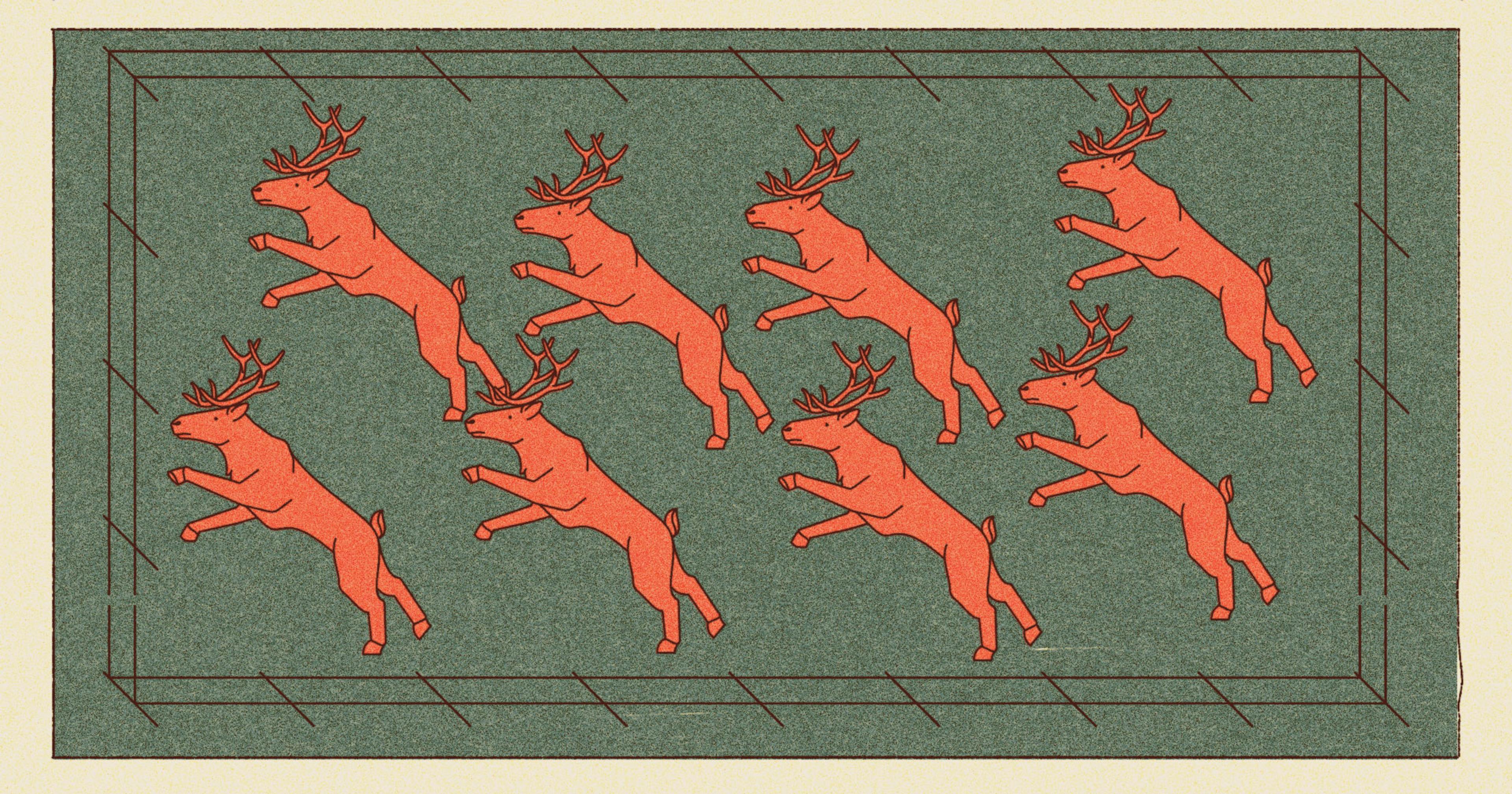Insects are excluded from welfare protections, but with a rapid expansion in the number of insects being farmed, scientists and producers say that may need to change.
Consider an insect; maybe there’s one buzzing around your head right now. It’s likely that few people would dwell deeply on the ethical implications of swatting that fly. Even concerns about practices that deliberately harm insects, like pesticide use, are rarely couched in welfare terms.
But as insects come to occupy a new position — largely as farm animals for livestock feed — welfare questions are coming to the fore. Worldwide, roughly 1.2 trillion insects are already raised annually, a number that is expected to increase by orders of magnitude as more insects are farmed for pet food, livestock feed, and human consumption (compare that to the approximately 1.55 billion cattle worldwide, in 2022). With that expansion imminent, researchers and farmers are attempting to answer an existential question: Do we need to care about insect welfare — and what, exactly, does welfare look like for a bug?
As it stands, there are no welfare protections for insects. “Insects just aren’t animals, from the perspective of policy,” said Bob Fischer, professor of philosophy at Texas University and president of the Anthropoda Foundation, which was established this year to support funding for insect welfare research. “It’s really the Wild West when it comes to these agricultural practices.”
The U.S. Animal Welfare Act doesn’t include invertebrates, for example, nor does its counterpart in the UK. Fischer said some producers are doing their best, but in the absence of regulations there’s nothing to stop producers from focusing on maximizing production — which may not always align with welfare considerations.
One of the companies attempting to do its best is Entosystem — a black soldier fly farm located in the Canadian province of Quebec. Entosystem, which raises flies for use in animal feed and fertilizer, stands to become the largest black soldier fly facility in North America when it reaches full capacity (currently it’s operating at around 40 percent).
Chief science officer Christopher Warburton said that when he started working in insect farming eight years ago, welfare wasn’t considered an issue. At first, Warburton said he felt irked by those focused on it, given the harm done to insects by conventional agriculture through the use of insecticides. But given that he’d gotten into insect farming to do good for the planet, “You do have to start thinking about: Are you harming them?”
Entosystem takes this into account by killing larvae and adults in what they believe to the most humane ways — high heat for larvae, extreme cold for adults — and mimicking natural living conditions for different life stages.
Yet there are still many unknowns, said Warburton.
“Insects just aren’t animals, from the perspective of policy.”
Filling in this picture requires determining whether insects have the capacity to experience feelings: in other words, whether they’re sentient.
Most people wouldn’t doubt the sentience of an animal like a cow, said Andrew Crump, lecturer in animal cognition and welfare at the Royal Veterinary College, London. If nothing else, few would question that a mammal can feel pain. But until recently, he says, insect researchers and the farming industry conclusively ruled this out for insects.
Now, a more tenable position is to say we’re not sure, said Crump — a position supported by his own research, which has included work on bees. Crump and collaborators have found, for instance, that bees will endure high heat they’d otherwise avoid, if it means they can sup on a sugar solution (suggesting their behavior is more than simple reflexes, but instead involves trade-offs between motivations). Researchers also found that an injured bee will tend to its wounds, as humans do. “Until that paper people were saying ‘Insects don’t do this, there’s no case of insects doing this,’” said Crump. “Of course, it turns out that in reality it’s just that no one’s really seriously looked for it.”
Establishing whether or not insects feel pain is the first step in determining whether welfare considerations apply, said Crump. The next step is to ask what that means for humane treatment, especially in the slaughter of farmed insects.
At Indiana University, a new lab is exploring this for some of the most common farmed insects. Assistant professor Meghan Barrett, the lab’s founder, said the focus will be on slaughter and nutrition, with a goal of developing standard operating procedures for mealworms and black soldier flies.
On the question of slaughter, Barrett said standard operating procedures matter. Barrett’s past research has proposed grinding, boiling, and freezing in liquid nitrogen are likely the most human slaughter methods, based on instantaneous death. Yet whether those methods cause instant death is procedure-dependent (think of how fast one larvae dies in a litre of boiling water, versus a million larvae). Barrett published recommendations on humane grinding for black soldier flies in 2023, and is currently investigating recommendations for mealworms.
“At the end of the day, we are raising insects and we are killing them, and so you have to be careful of not having an impact on your business either.”
Beyond slaughter, there are welfare considerations for diet, and for ideal rearing conditions — and these are species-specific, said Barrett (for instance, mealworms are stressed by light, while black soldier flies need it for mating behavior). “Welfare is about providing each individual with what they need to have a life worth living — and this is going to vary based on the kind of life an animal leads given its species-typical needs,” Barrett wrote in an email.
These are core questions that still need to be answered. Nonetheless, taking precautions for welfare, even where questions exist, is not without precedent. When the Animal Welfare Act was introduced in 1966 in the United States, very little was known about birds, said Bob Fischer. People debated whether chickens and other birds engaged in motivational tradeoffs, or had nociceptors (the sensory neurons that allow the experience of pain). Nonetheless, welfare protections were applied to some species.
“We knew less about birds [then], with respect to the evidence for sentience, than we do about insects in 2024,” Fischer said. Now, evidence is suggesting that insects, too, show those signs of sentience. “If we’re going by the standard of what was good enough to get some precaution in place [then], insects clear the bar.”
More to the point, people worried about the complex implications of protecting insects should consider how permissive welfare practices are for agricultural animals like chickens, pigs, and cattle, Fischer said. In that context, industry has carve outs for practices it deems necessary. “Given that level of permission, it’s hard to see why we would be particularly anxious about regulation for some new species.”
“It’s hard to see why we would be particularly anxious about regulation for some new species.”
Yet welfare regulations for farmed insects are a particular can of worms, said Warburton at Entosystem, given the implications for treatment of insects in other agricultural contexts and for insect farming itself. (Scientists estimate that insects are declining 1-2 percent per year worldwide, in part due to pesticide use.)
“It’s a big topic, it’s a really prickly topic, and at the end of the day, we are raising insects and we are killing them, and so you have to be careful of not having an impact on your business either,” said Warburton.
He thinks the likely path forward for the industry is self-regulation. Insect farming has been caught on the backfoot by the welfare conversation, he said, but it’s now focused on the issue. The North American Coalition for Insect Agriculture, a trade association for the industry, aims to publish draft guidelines for welfare in 2025.
With so many questions, researchers and farmers say it’s important for everyone to work together to fill in the gaps. Either way, insect farming already expands what we think of as agriculture — now it may do the same with welfare.
